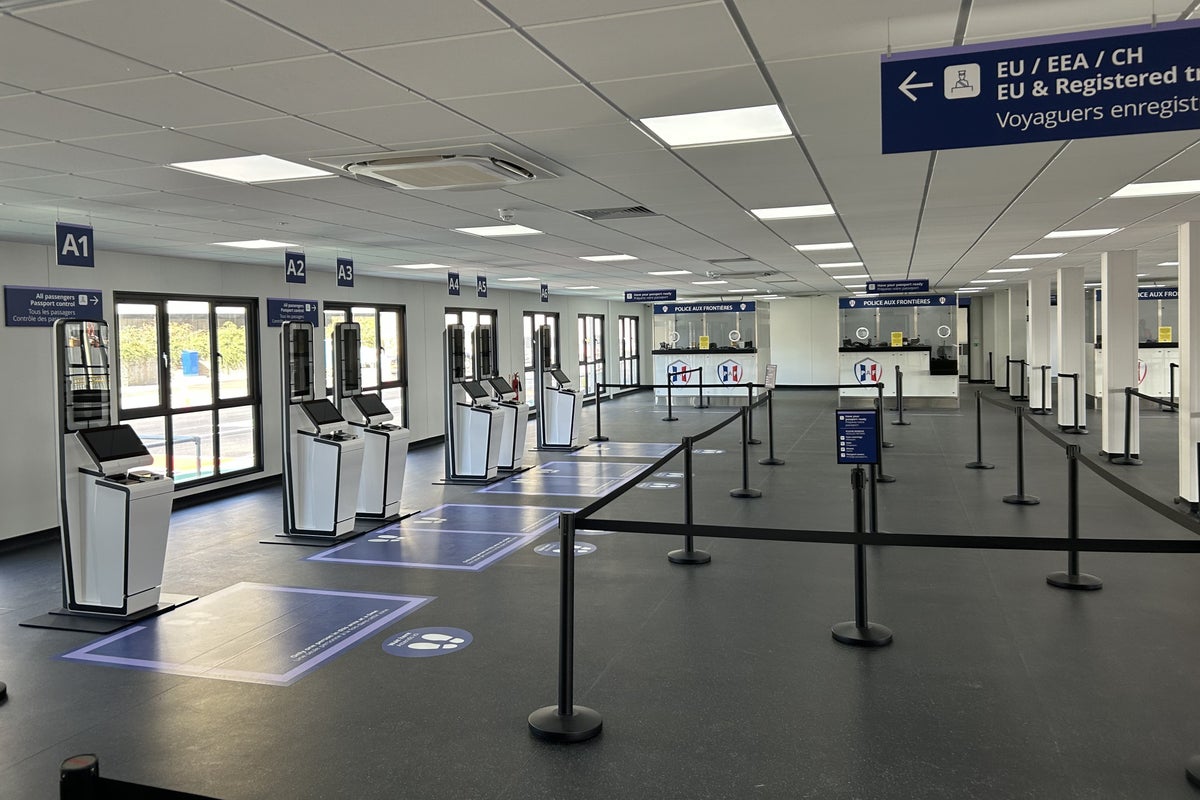Your support helps us to tell the story
From reproductive rights to climate change to Big Tech, The Independent is on the ground when the story is developing. Whether it’s investigating the financials of Elon Musk’s pro-Trump PAC or producing our latest documentary, ‘The A Word’, which shines a light on the American women fighting for reproductive rights, we know how important it is to parse out the facts from the messaging.
At such a critical moment in US history, we need reporters on the ground. Your donation allows us to keep sending journalists to speak to both sides of the story.
The Independent is trusted by Americans across the entire political spectrum. And unlike many other quality news outlets, we choose not to lock Americans out of our reporting and analysis with paywalls. We believe quality journalism should be available to everyone, paid for by those who can afford it.
Your support makes all the difference.Read more
New post-Brexit border systems requiring non-EU citizens to provide biometric information might not be working, despite a planned launch this week.
The European Union’s Entry/Exit System (EES), which will be phased in from October 12, will involve passengers having their photo and fingerprints taken when travelling to the EU.
The PA news agency understands that the new kiosks designed to conduct the checks may not be ready for the system launch on Sunday.
Eurotunnel, Eurostar and Port of Dover have all spent millions installing EES ahead of “going live” in limited capacity from this week.
All three have insisted that they are ready for the new system launch.
However, an official at Port of Dover has said the EES kiosks, which will collect data on travellers, are having trouble connecting to the EU servers where that data will be stored.
The EU regulations for EES provide a 60-day period after October 14 for biometrics to start being used, but “encourage” that they start as soon as possible to “support a smooth operational transition”.
The Port of Dover has spent £40 million on its new facilities, which has required them to reclaim wetlands and – for coach passengers – move the French border.
Its coach facility has been installed with 12 EES kiosks along with French border control (Police Aux Frontieres) and hopes to be able to process up to 20 coaches an hour.
Coaches will then have a security seal put across their doors, to ensure no new passengers come aboard before they reach the ferry.
Doug Bannister, Port of Dover chief executive, said: “It is our intention that we will be going live for coaches on Sunday.
“As has been emphasised by the EU, this will be a very gradual and phased implementation, so alongside a 10% start we also expect that the EES rollout here will start with the passport data before the biometric element is introduced.”
The port’s system for regular car users is still under construction, with new roads still being constructed, but the port insists it would be in a position to use EES for all cars from November 1.
Once it is fully built, there will be 74 EES kiosks for non-EU car passengers to use.
It is estimated that the new checks for car passengers will take six minutes, as opposed to the old system which took between 30 seconds and a minute.
Unlike coach passengers, cars will then still have to go through French border control before boarding the ferry.
Mr Bannister said that the new EES facilities had been “purpose built” to be able to handle the volume of customers, and was convinced that the processes would work successfully.
Eurotunnel will begin processing coaches and lorries with the EES on October 12, which will not require the kiosks, but hopes to start using them for car passengers by the end of the year.
Its version of the system, which cost roughly 80 million euro (£70 million), aims to process 700 vehicles an hour, using 224 kiosks at peak times across its two terminals.
A Eurotunnel spokesperson said: “At Eurotunnel, the initial stage will focus on coach and freight traffic only and will be managed directly at the border by PAF (Police Aux Frontieres – French border police).
“Freight drivers will be able to remain in their lorries to complete their EES formalities.
“For car passengers, the process will be introduced later in the year, in line with the EU’s gradual implementation.
“Eurotunnel’s dedicated EES pre-registration zones for passenger vehicles are ready to begin operations, following agreement from the relevant authorities.
“All elements of the EES will be phased in over a six-month period.
“During this time, travellers will still be required to have their passports stamped.”
Eurostar has spent £11 million overhauling its border facilities at London St Pancras station, building 49 kiosks.
Police Aux Frontieres has been contacted for comment on whether the new EES kiosks will be operational by Sunday.
